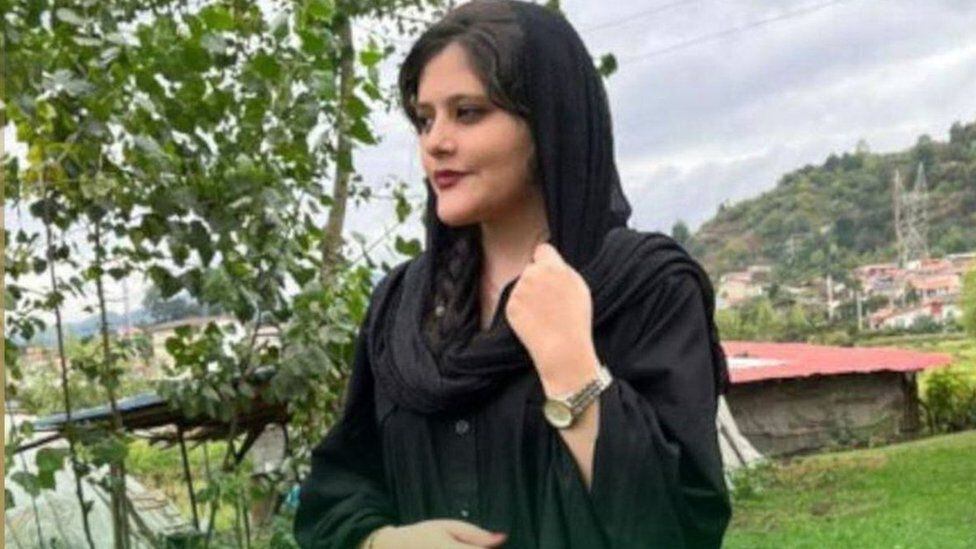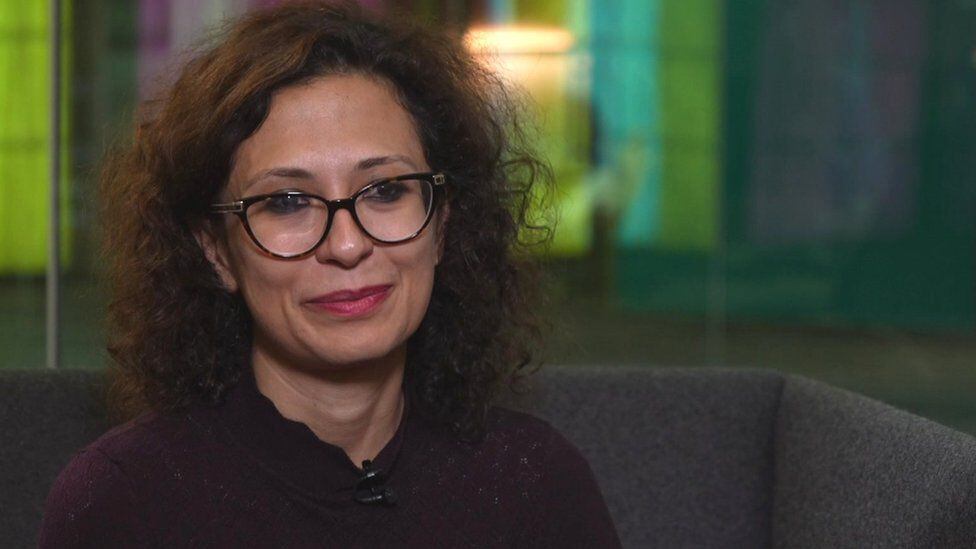Protests against religious rule have spread like never before among the new generation of women and girls in Iranwhose parents and grandparents unsuccessfully tried to change the system from within.
In video messages and on social networks, young victims of a violent repression they explain why they risked their lives to defy the authorities.
Look: How are the Iranian drones that Russia used in the worst wave of attacks against Ukraine in months
“Clergymen, get lost.” That is the chant of girls as young as 11 in classrooms across Iran.
Social networks are full of videos of them removing the photo of the supreme leader, the Ayatollah Ali Khameneibreaking it and then burning it.
“If we don’t unite, one by one, we will become the next Mahsa Amini”is another of her cries, referring to the young Kurdish woman who died in police custody after allegedly wearing the veil “inappropriately”.
The protests over his death show no signs of abating, despite the violent response from the authorities.
Fight for a better future
A 22-year-old tiktoker named Hadis Najafi recorded a video on her phone as she walked to a protest, dreaming of a better future.
“I hope that in a few years, when I look back, I am happy that everything has changed for the better,” he is heard saying as night falls around him, in video obtained by the BBC’s Persian service.
Hadis’s family told me she was shot dead nearly an hour later.
In a video posted on social media, his mother said he had gunshot wounds to his heart, stomach and neck.
“He came home from work and said he was hungry, but before eating he went out to protest Mahsa Amini,” says his mother.
Human rights groups say dozens of young people, including minors, have died due to government repression. Many more have been arrested.
“We are not like the previous generation”
Iran’s Generation Z is paying the price for wanting to change.
Hosein Ghazian, an Iranian sociologist, says the prevalence of social media is a factor in the protests, along with complete disillusionment with any other opportunity for change.
“This generation is more up to date and aware of the world they live in,” he says. “They have realized that life can be lived differently.”
And he adds: “They do not see prospects for a better future with this regime and that gives them courage.”
Sarina Esmailzadeh, a 16-year-old vlogger, summed up this fearless attitude.
“We are not like the older generation 20 years ago who didn’t know what life was like outside of Iran,” he says in a video on his YouTube channel.
“We wonder why we don’t have fun like the young people in New York and Los Angeles,” he adds.
These young women are willing to risk it all to live a decent life.

Sarina went out to protest and died from severe blows to the head, according to Amnesty International.
Iran denies this, saying he took his own life by jumping off a building.
His family is under pressure to accept the government narrative and has not spoken to the media.
In a video, Sarina sings Hozier’s song Take Me to Church. Written out of frustration at the influence of the Catholic Church in Ireland, it has become a global anthem for freedom.
A more successful message
For Azadeh Pourzand, a human rights researcher, the protests represent a profound moment of change.
He is moved by the clarity of the young women’s demands.
“The way they talk to each other in simple terms,” he says, “they are much more successful than we are in communicating their demands and their hopes to the world.”
Pourzand says that this young generation learned from how their parents and grandparents tried to change the Islamic system from within but failed.

“They are the future of older generations,” he says, praising his brave stand. “They want a life where they don’t have to be afraid.”
The protests also have a personal connection for her. Her mother, Mehrangiz Kar, was one of Iran’s leading human rights lawyers, but she had to flee the country.
Now he is looking at the movement with sadness and pride, says Pourzand.
His mother was delighted with the refusal of university students to agree to eat lunch separated by gender, as is the rule.
Facing the impossibility, they all sat together on the ground outside the university cafeteria.
“I received my gift, the gift of my fighting life,” he says his mother told him.
Now all generations of Iran are watching and waiting.
Source: Elcomercio
I, Ronald Payne, am a journalist and author who dedicated his life to telling the stories that need to be said. I have over 7 years of experience as a reporter and editor, covering everything from politics to business to crime.

:quality(75)/cloudfront-us-east-1.images.arcpublishing.com/elcomercio/GE4DAOBNGEYC2MJUKQYDAORRHA.jpg)

:quality(75)/cloudfront-us-east-1.images.arcpublishing.com/elcomercio/TW4W5ZPDDFGTVHOHJVTNSQO3AQ.jpg)
:quality(75)/cloudfront-us-east-1.images.arcpublishing.com/elcomercio/LBDMRXUWFNG6JBGYKVDC4BBKJI.jpg)
:quality(75)/cloudfront-us-east-1.images.arcpublishing.com/elcomercio/C5GZZXVLHBHUJERSXVJKPFREGA.jpg)
:quality(75)/cloudfront-us-east-1.images.arcpublishing.com/elcomercio/NAC7LX2NP5CVBGX24Q5VJNFPRU.png)
